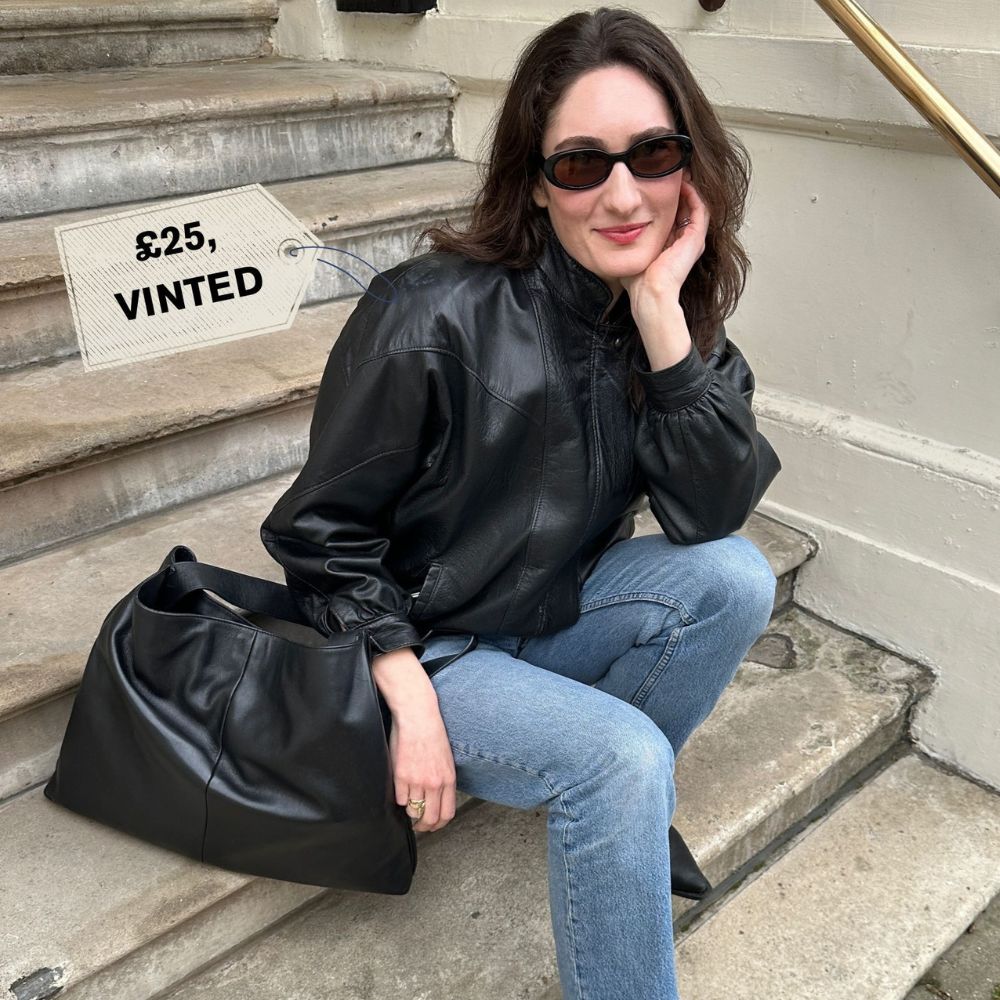16 Aesthetician-Approved Cleansers for Every Skin Type
Cleansing is to skincare what brushing your teeth is to your personal hygiene routine: boring, but essential. It's the reason why, as an esthetician, cleansing is the first thing I do once a client has made themselves comfy on the bed—if the skin isn't clean, then any consequently applied products can't work their magic. Not only do the best cleansers do the hard work of removing daily grime, pollution, and makeup from your skin, but if you choose the right one, it can also do everything from sloughing away dead skin cells to calming breakouts and boosting moisture levels. But with so many cleansers out there, from cleansing balms to cleansing oils and drugstore cleansers to luxury cleansers, how do you really know which one is going to do the best job for your skin?
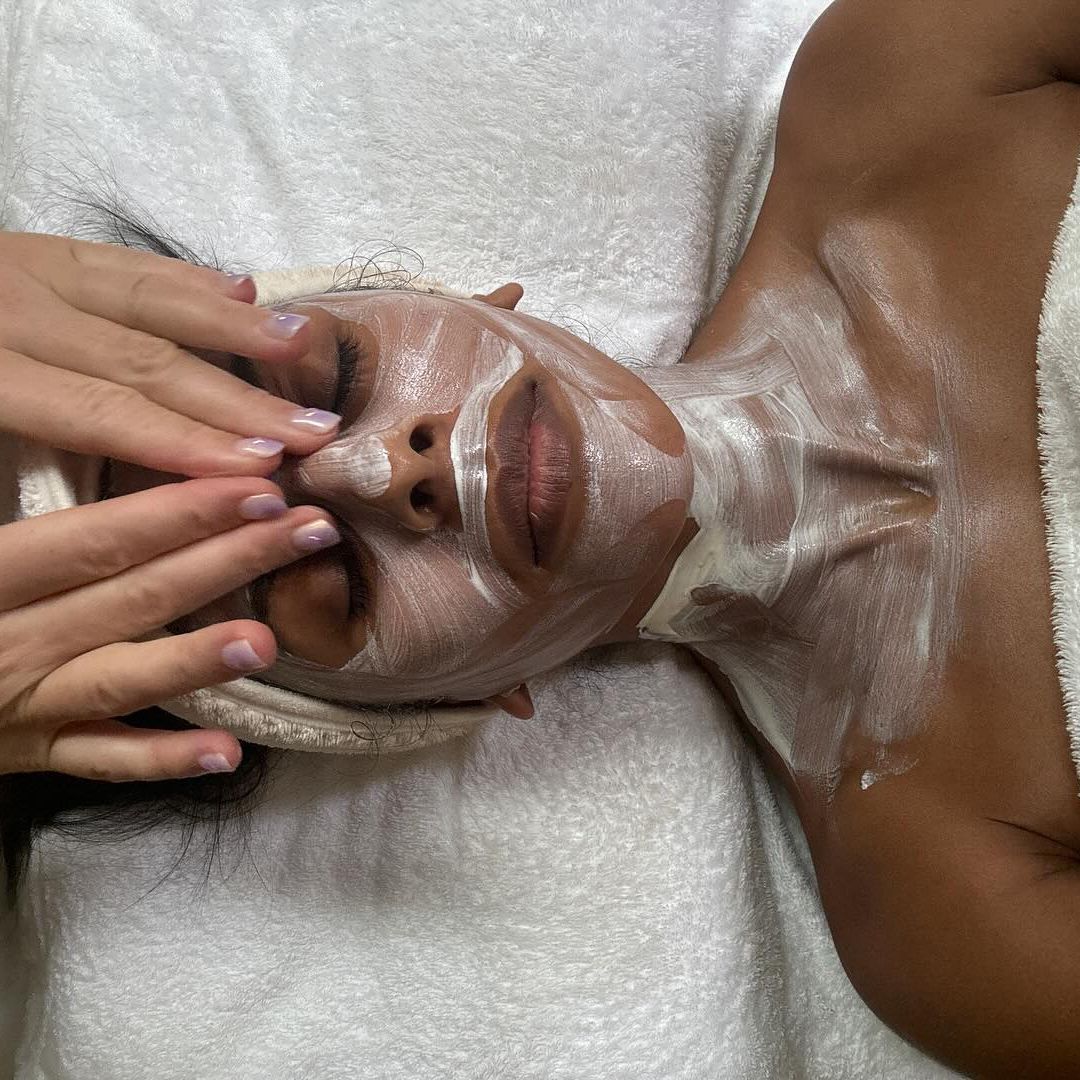
To start with, it's important to really understand your skin type—something that can be genuinely confusing to the uninitiated. While I don't personally love categorising skin into types—after all, skin is affected by so many factors—the skin is usually broken down into four key categories: oily, combination, dry, and normal (lucky you). On top of that, you may have additional skin concerns, such as sensitivity (see our round-up of the best cleansers for sensitive skin), redness, breakouts, dehydration, and signs of ageing, which will also impact your choice of cleanser.
How To Choose A Cleanser
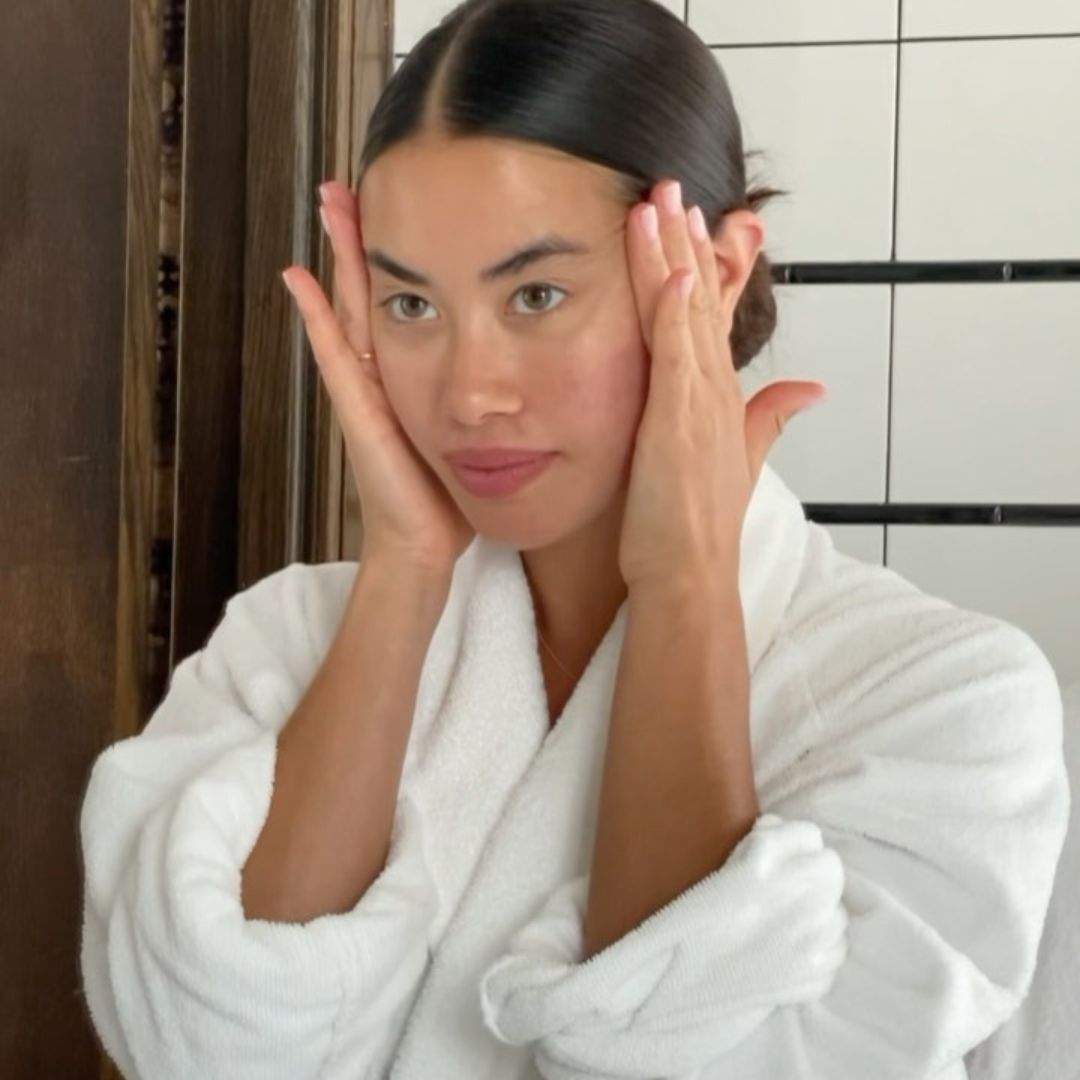
As we've already established, your skin types and concerns should be the primary factors dictating your choice of cleanser. But it's also important to consider when you're going to use the cleanser and what you need the cleanser to do. For example, in the morning you only need to use a gentle cleanser as there's no need to remove makeup, but in the evening you'll probably want something more thorough, and depending on whether or not you've worn makeup, you may also need to double cleanse.
In addition, you may have a preference for texture. Some people like a refreshing gel cleanser or a foaming solution, whereas others prefer a nourishing balm cleanser, (Elemis Pro-Collagen Cleansing Balm is an icon for a reason) or a silky oil cleanser.
Choosing a cleanser for oily skin: If you have oily skin, opt first for an oil-based cleanser (remember, oil attracts oil), then a gel cleanser, ideally something with salicylic acid to deeply cleanse pores.
Choosing a cleanser for dry skin: Dry skin types usually prefer a cleansing balm or oil, or even a cream cleanser. Avoid anything foaming as this will strip skin.
Choosing a cleanser for combination skin: A gentle, non-foaming gel cleanser will help to ensure combination skin is thoroughly cleansed of excess oil, but not stripped of moisture in the process.
Choosing a cleanser for sensitive skin: If you have sensitive skin, it's best to avoid anything foaming, abrasive, or astringent. Look instead for calming ingredients like cica, oat, and aloe which you'll find in the best cleansers for sensitive skin.
Choosing a cleanser for breakout-prone skin: Again, if you're breakout prone then anything abrasive should be avoided. Utilises instead the powder of chemical exfoliants like salicylic and mandelic acids, which you'll find in some of the best cleansers for acne.
Keep scrolling for some top cleansing tips and to shop the best cleansers for your skin type and concerns.
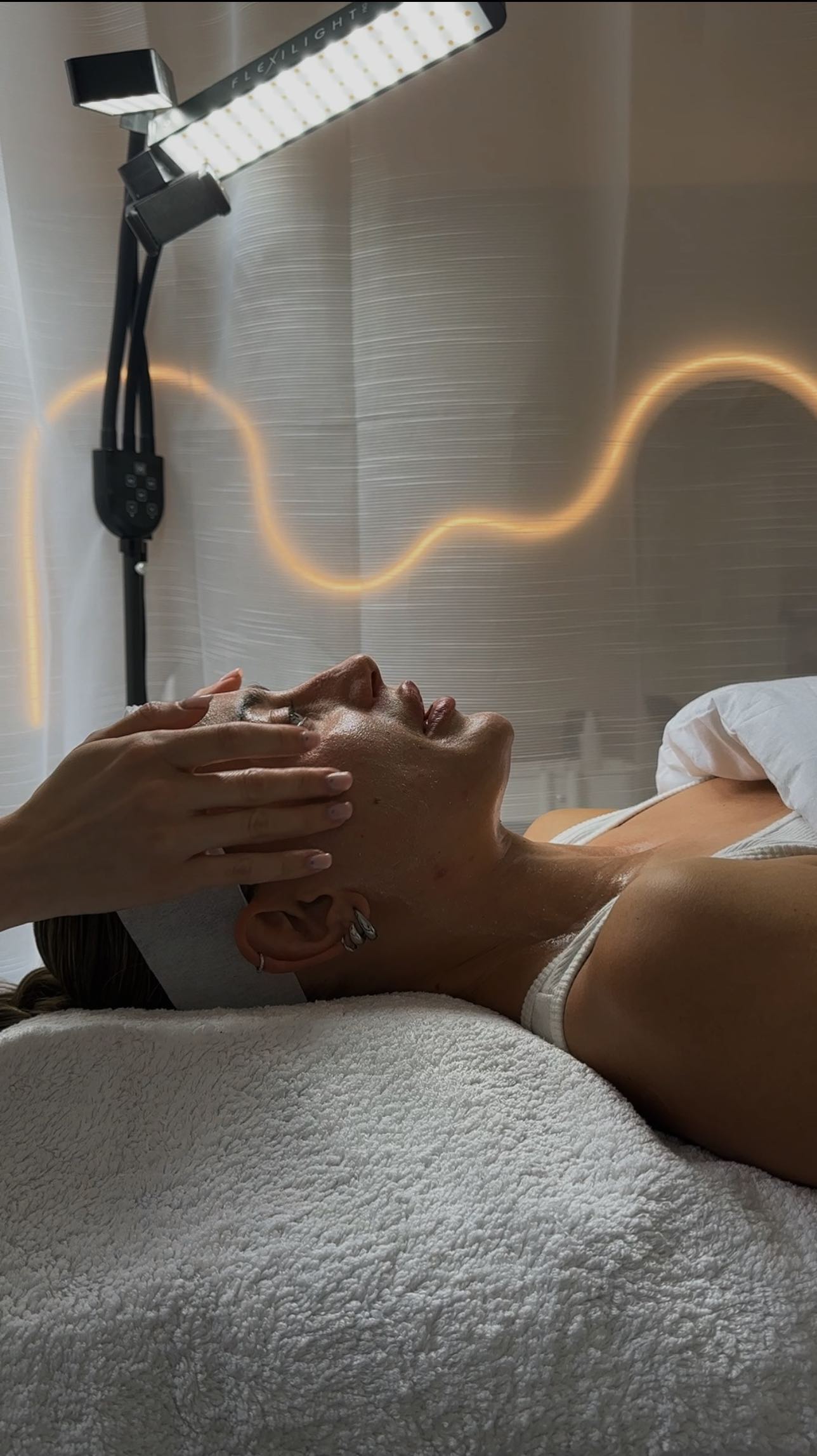
The Best Cleansers, Tried and Tested
- Best for oily skin: Environ Low-Foam Cleansing Gel, £45
- Best for dry skin: Sunday Riley Aquamarine Melt Cleansing Gel-Balm, £38
- Best for combination skin: Iraye Cream-to-Foam Cleanser, £44
- Best for normal skin: Zelens Shiso Balm Radiance Cleanser, £50
- Best for sensitive skin: Dr Sam's Flawless Cleanser, £19
- Best for breakout-prone skin: M&S Clarify Skin Perfecting Jelly Cleanser, £10
- Best for dehydrated skin: Dermatica Balancing Glycerin Gel Cleanser, £13
- Best for redness-prone skin: Beauty Pie Happy Face No-Stress Jelly Cleanser, £12
- Best for dull skin: Youth To The People Energy Cleanser, £38
- Best for textured skin: Rhode Pineapple Refresh Cleanser, £30
- Best for mature skin: Tatcha The Indigo Cleansing Balm, £40
- Best for teen skin: Dr. Idriss Soft Wash, £31
- Best for makeup removal: Glossier Milky Jelly Cleansing Balm, £34
- Best for a morning cleanse: Aveeno Calm + Restore Nourishing Oat Cleanser, £10
- Best for a first cleanse: Skin Rocks The Cleansing Balm, £55
- Best for a second cleanse: iS Clinical Cleansing Complex, £48
1. Environ Low-Foam Cleansing Gel
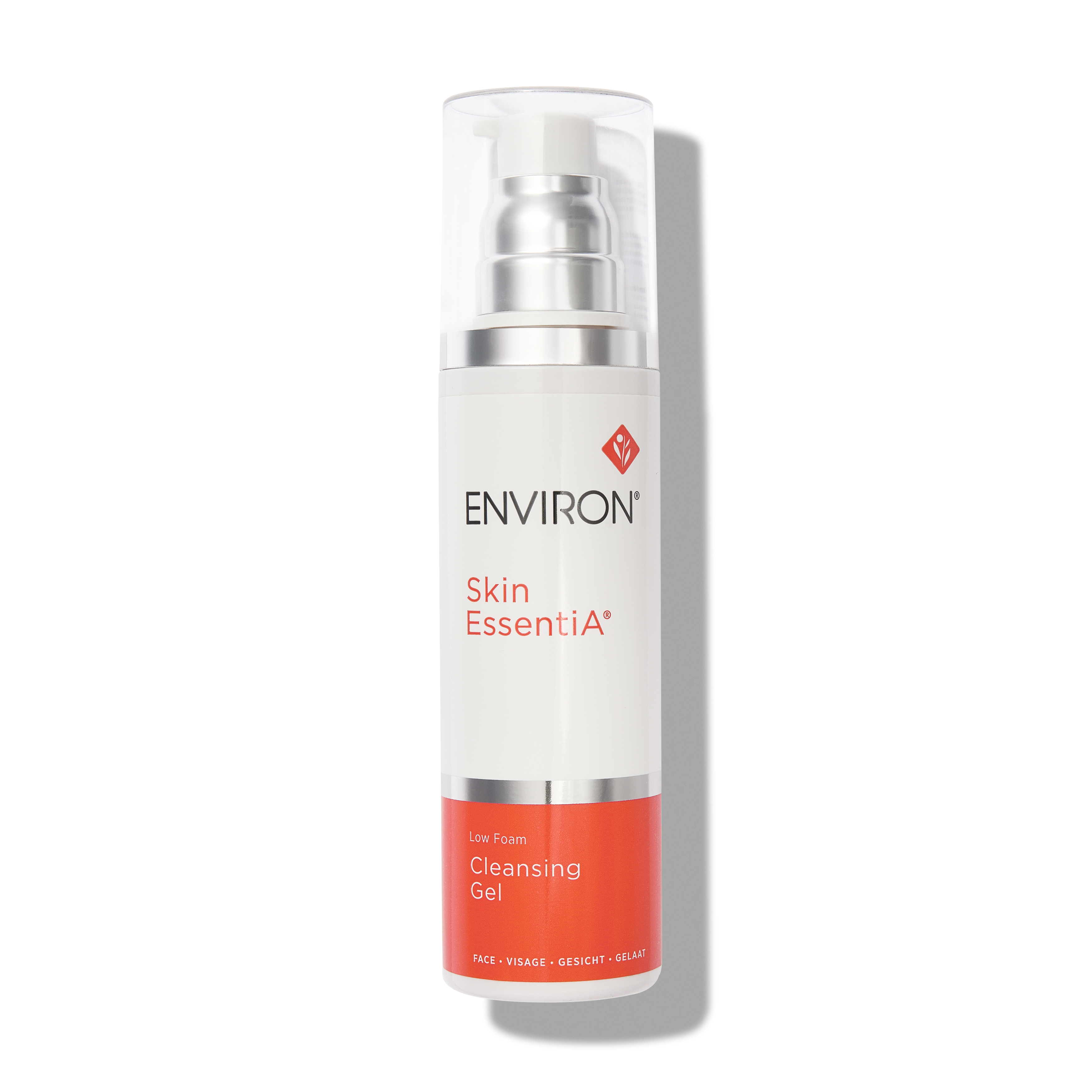
Best for: Oily skin
Best used: As a morning cleanse or second cleanse
Key ingredients: Oats, glycerin, d-panthenol
The key with oily skin is to find a cleanser powerful enough to deal with excess oil, but not so stripping that it will deprive your skin of moisture and force it into a cycle of further oil production. This light, refreshing cleansing gel is exactly that—easily removing makeup, oil, and other impurities while rehydrating skin and strengthening the skin barrier.
For
- Leaves skin feeling refreshed
Against
- High price point
2. Sunday Riley Aquamarine Melt Cleansing Gel-Balm
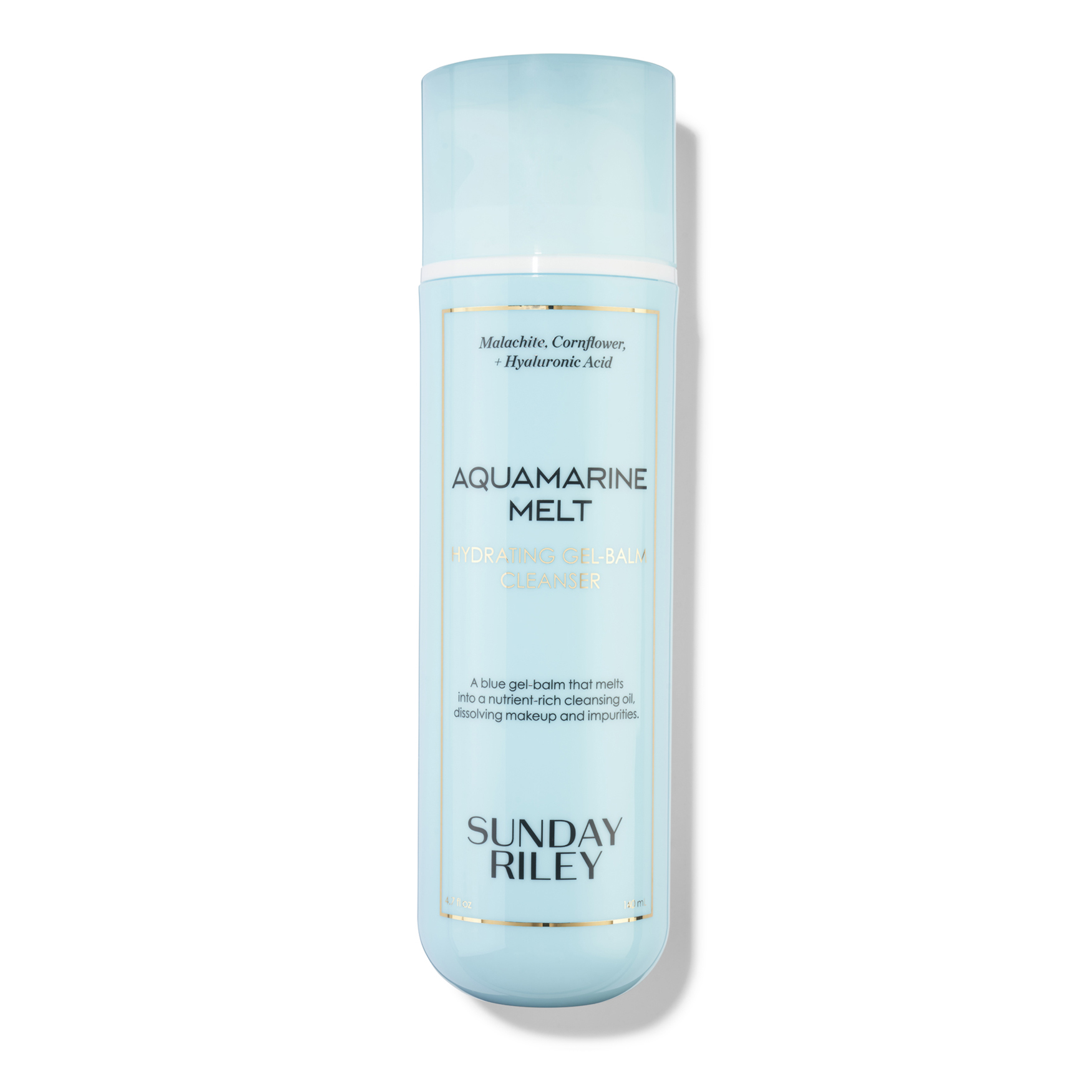
Best for: Dry skin
Best used: As a morning cleanse or evening cleanse
Key ingredients: Hyaluronic acid, evening primrose oil, cornflower, cocoa butter
This innovative cleanser combines the benefits of gel and balm into one, so you get a 360 cleansing experience in one simple step—ideal for those short on time. It breaks down makeup without the need for aggressive scrubbing, and doesn't leave any unwanted residue on the skin.
For
- Doesn't strip moisture from skin
Against
- Needs a double cleanse for heavy makeup removal
3. Iraye Cream-to-Foam Cleanser
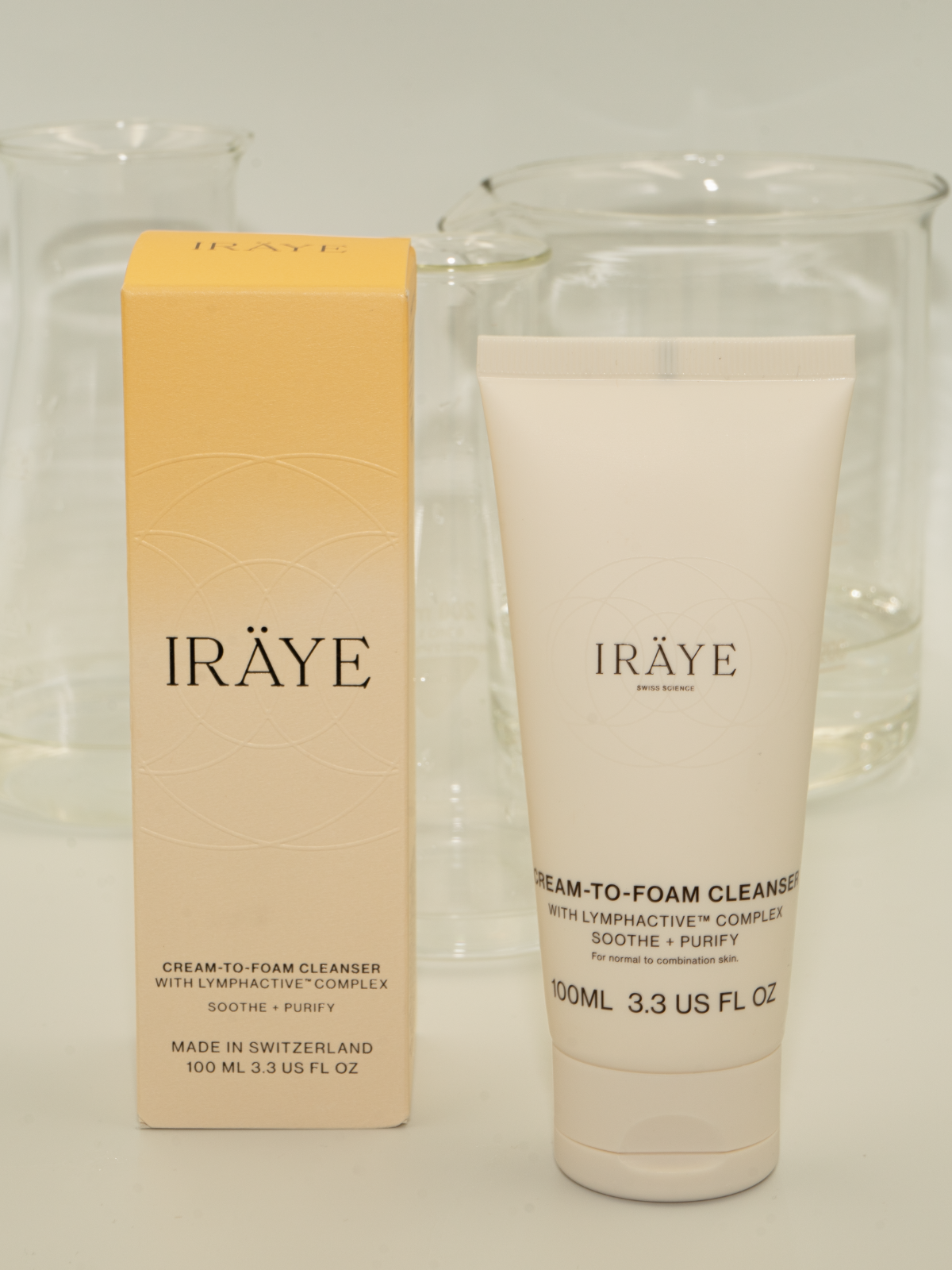
Best for: Combination skin
Best used: As a morning cleanse or second cleanse
Key ingredients: Sea buckthorn, fatty acids, chamomile extract
A cream-to-foam solution is ideal for those dealing with both dryness and areas of excess oil. This is a thick cream solution which gently foams, so your skin will feel balanced and won't be left with that uncomfortable squeaky clean feel once you rinse.
For
- Leaves skin feeling balanced
Against
- Only sold online
4. Zelens Shiso Balm Radiance Cleanser
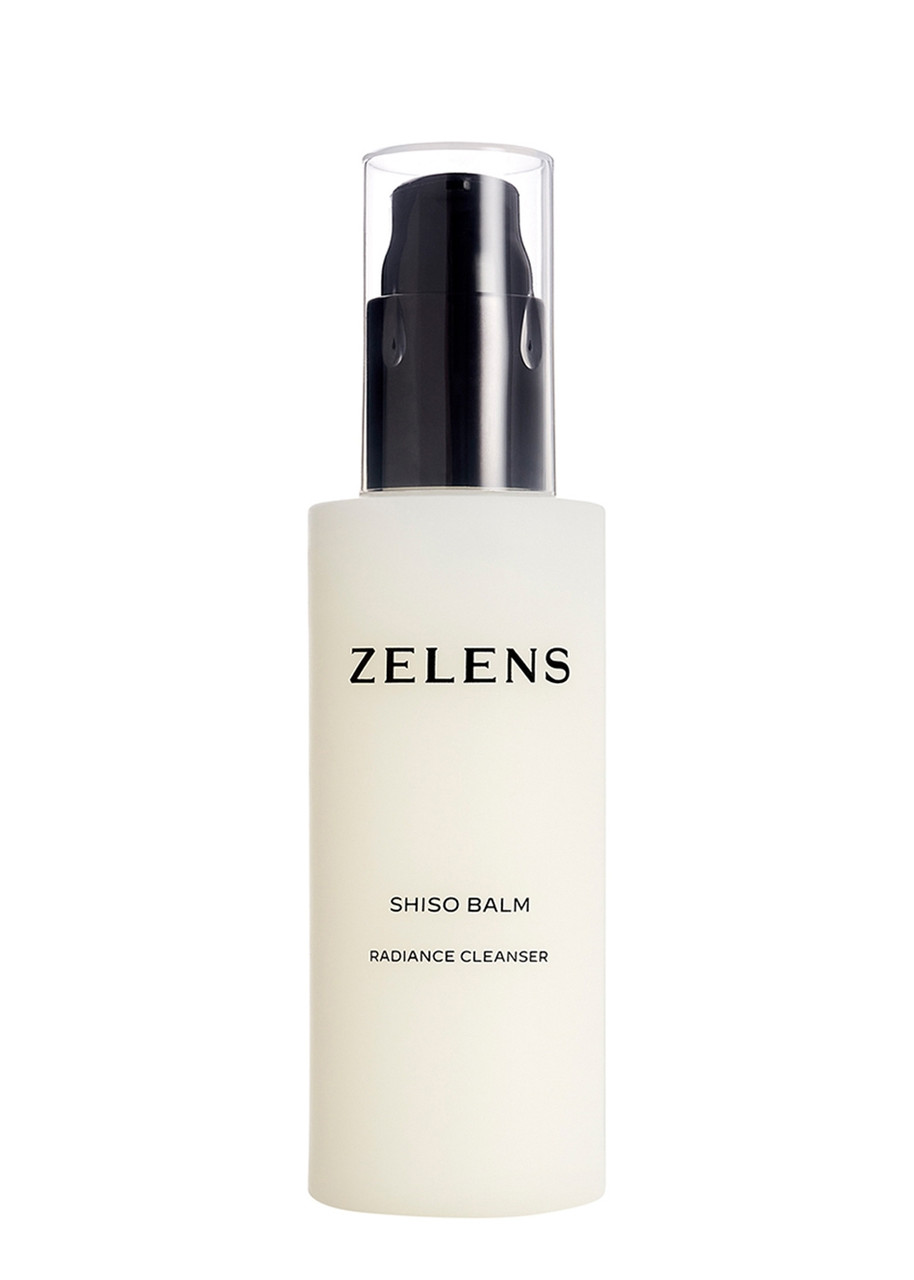
Best for: Normal skin
Best used: As a morning cleanse or evening cleanse
Key ingredients: Shiso, vitamin E, saccharomyces ferment
Those with fairly balanced, "normal" skin will find this multitasking cleanser ticks all of the boxes for them, even on days when skin might lean slightly dry or oily, or feel a bit sensitive. It's gentle, effective, and a the luxe texture lends itself to an enjoyable cleansing experience.
For
- Gentle, hydrating formula
Against
- Needs a double cleanse for heavy makeup removal
5. Dr Sam's Flawless Cleanser
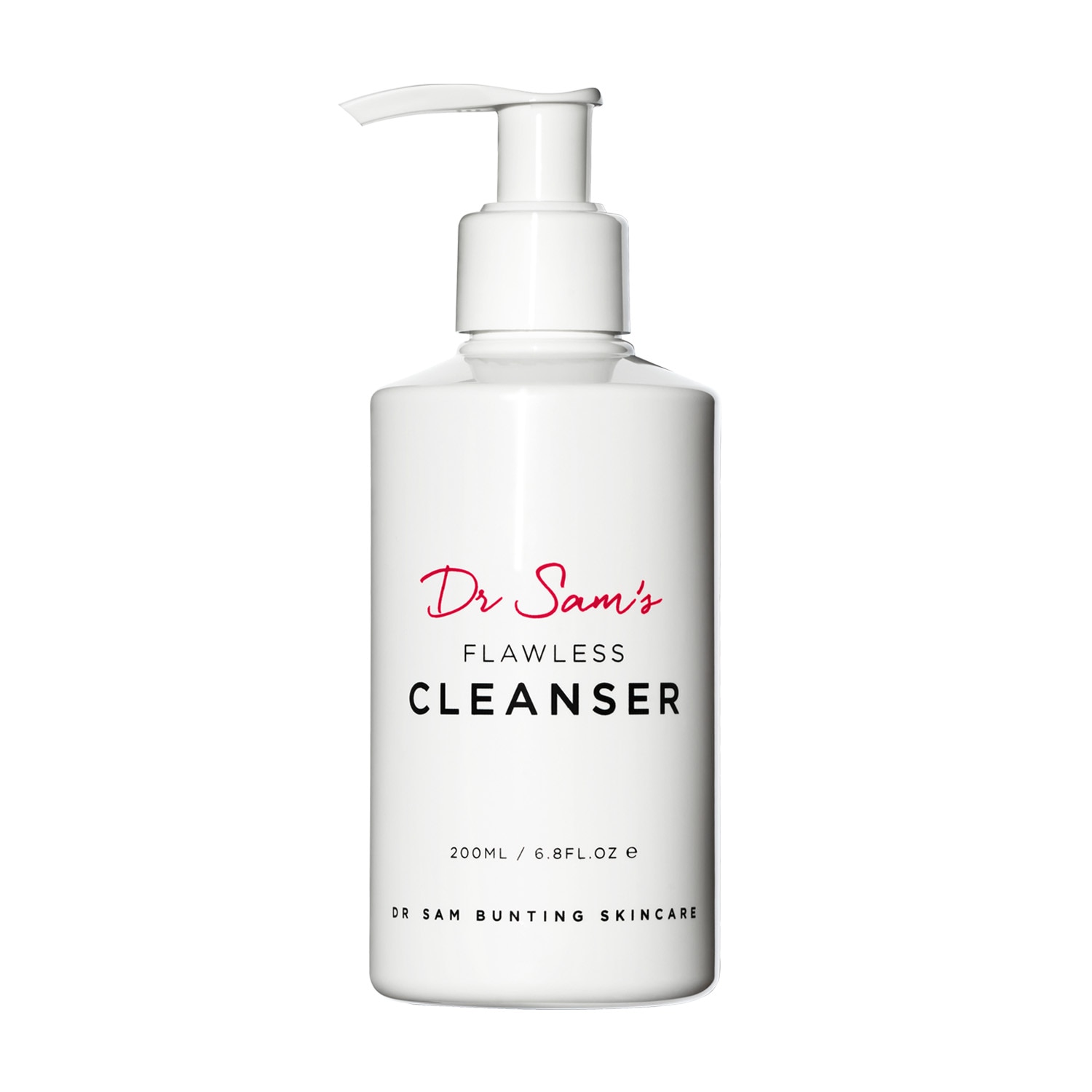
Best for: Sensitive skin
Best used: As a morning cleanse or evening/second cleanse
Key ingredients: Aloe, allantoin
This is one of my favourite cleansers to recommend to clients who have any kind of sensitivity of inflammation. Even acne and rosacea-prone skin types love it. It has a thick gel texture which doesn't foam, so it feels incredibly soothing.
For
- Fragrance-free and non-foaming
Against
- Needs a double cleanse for heavy makeup removal
6. M&S Clarify Skin Perfecting Jelly Cleanser
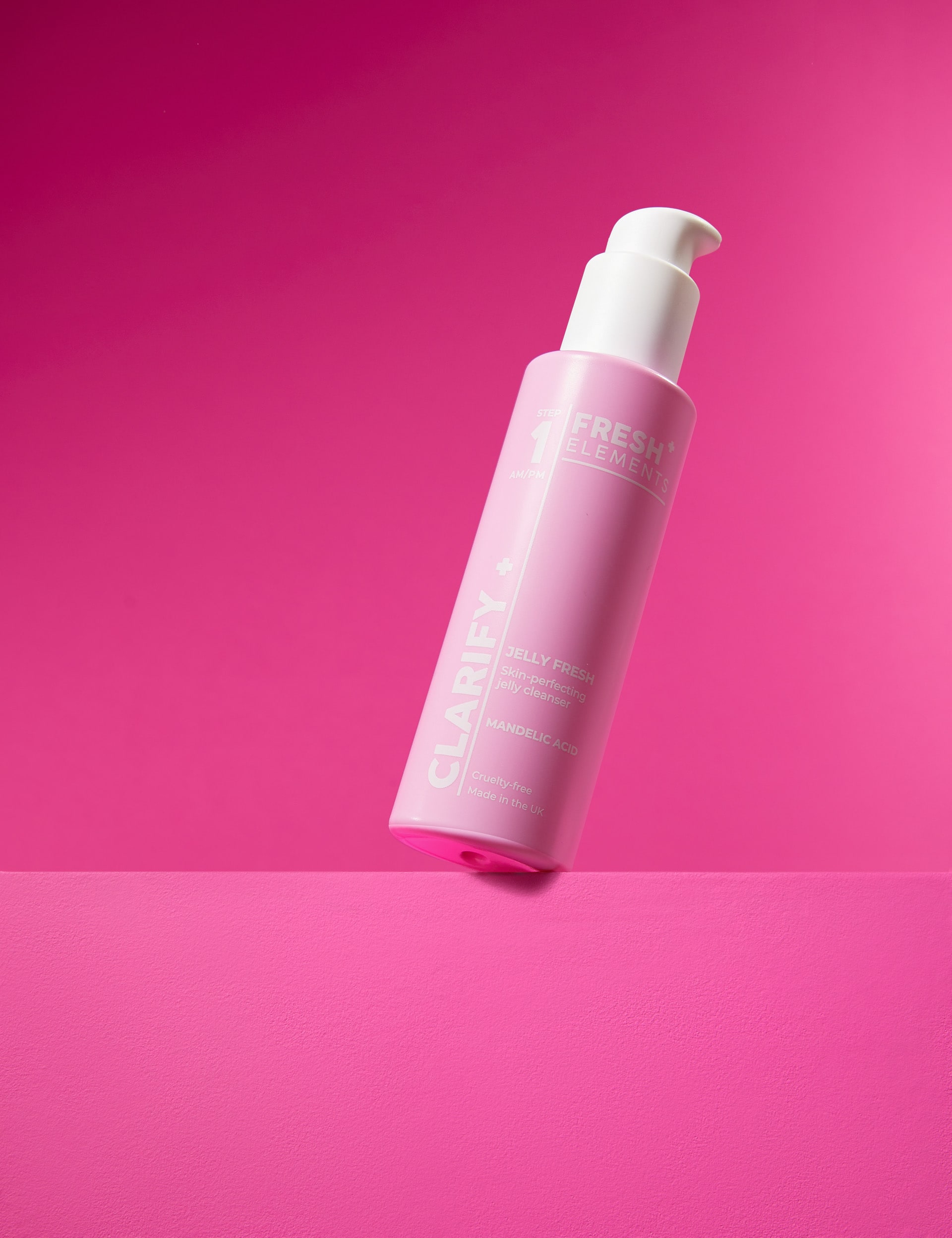
Best for: Breakout-prone skin
Best used: As a morning cleanse or evening/second cleanse
Key ingredients: Mandelic acid, allantoin, castor oil
A lot of cleansers labeled "for acne-prone skin" can be too harsh and stripping, which doesn't help with chronic breakouts and inflammation. I love this one because it utilises mandelic acid, an underrated chemical exfoliant which very gently works to reduce inflammation, redness, and congestion. What's more, it's non-foaming, so skin is left feeling calm and soft post-cleanse.
For
- Affordable price point
Against
- Often sold out
7. Dermatica Balancing Glycerin Gel Cleanser
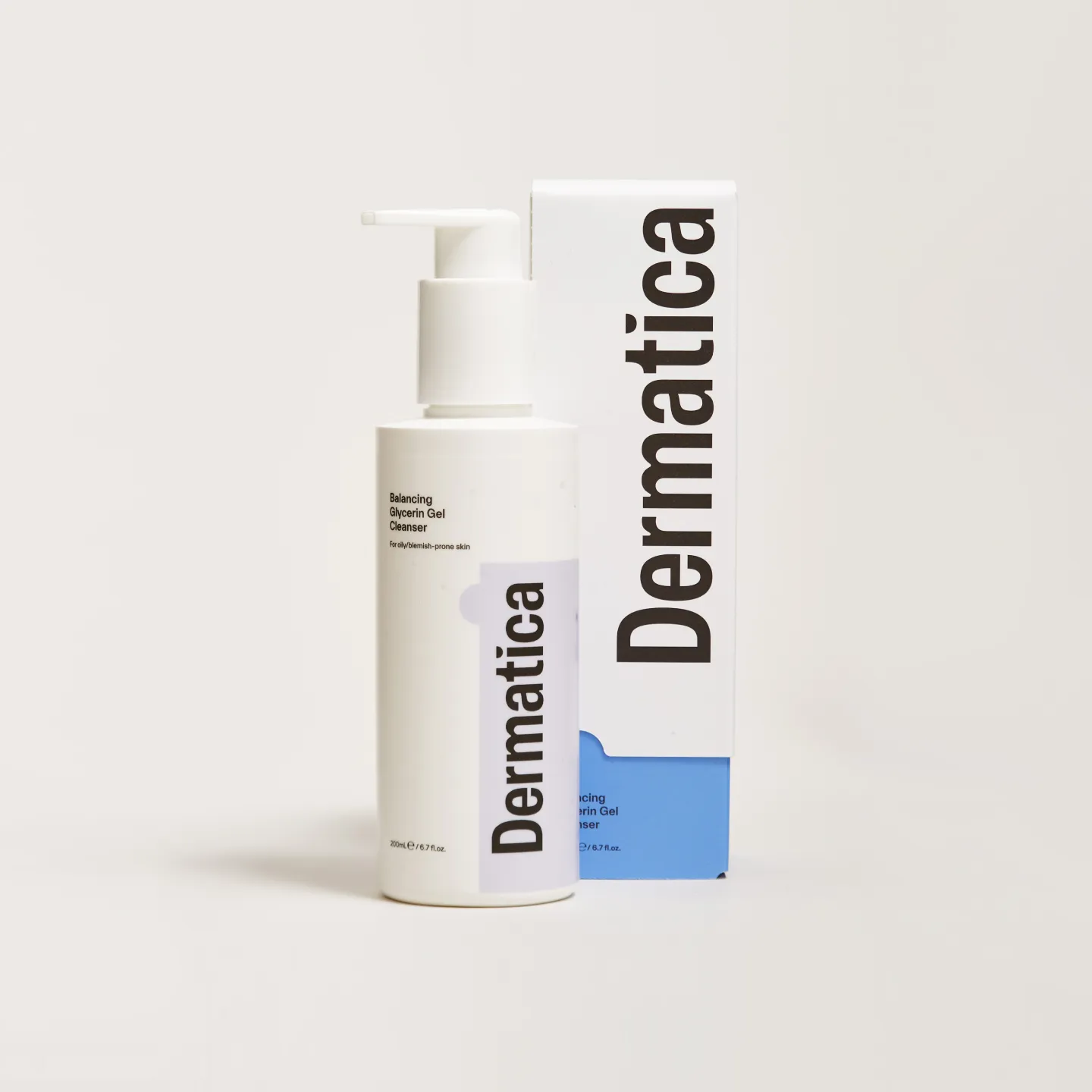
Best for: Dehydrated skin
Best used: As a morning cleanse or evening/second cleanse
Key ingredients: Glycerin
Cleansing too much or too harshly is the worst thing you can do to dehydrated skin, which is already lacking in moisture. This gentle, non-foaming cleanser is packed with hydrating ingredients which rehydrate skin while it cleanses—so your skin will be left soft, plump, and nourished.
For
- Cleanses without stripping
Against
- Only sold online
8. Beauty Pie Happy Face No-Stress Jelly Cleanser
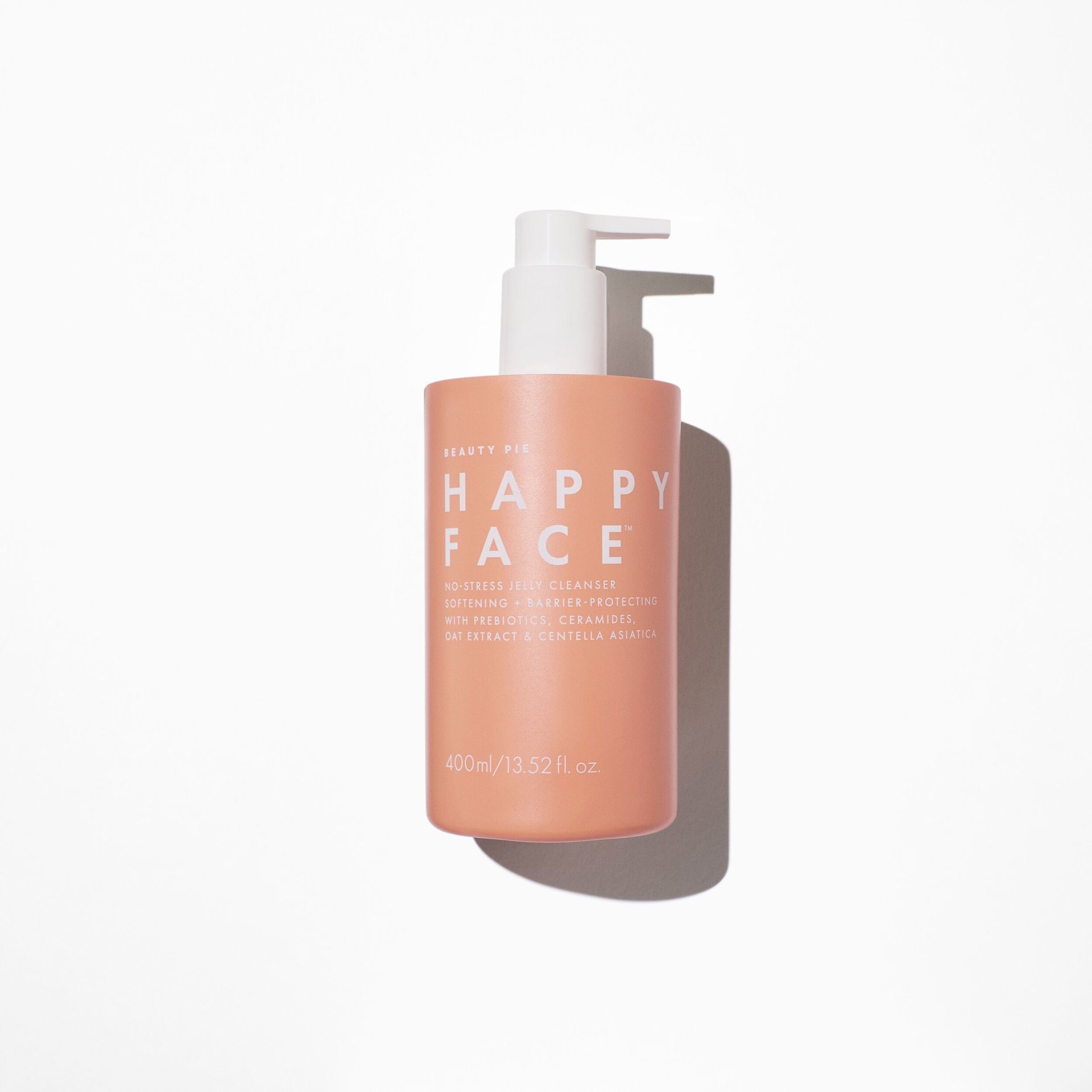
Price shown is member cost.
Best for: Redness-prone skin
Best used: As a morning cleanse or evening/second cleanse
Key ingredients: Prebiotics, cermaides, oat extract, cica, aloe vera, rosewater
Ceramides are buzzy ingredients at the moment thanks to their ability to support the skin barrier and therefore help to reduce everything from sensitivity to dehydration. This thick gel cleansers has them in bucketfuls, along with oat and aloe vera to soothe and calm redness.
For
- Non-foaming
Against
- £12 price point only applies to Beauty Pie members
9. Youth to the People Energy Cleanser
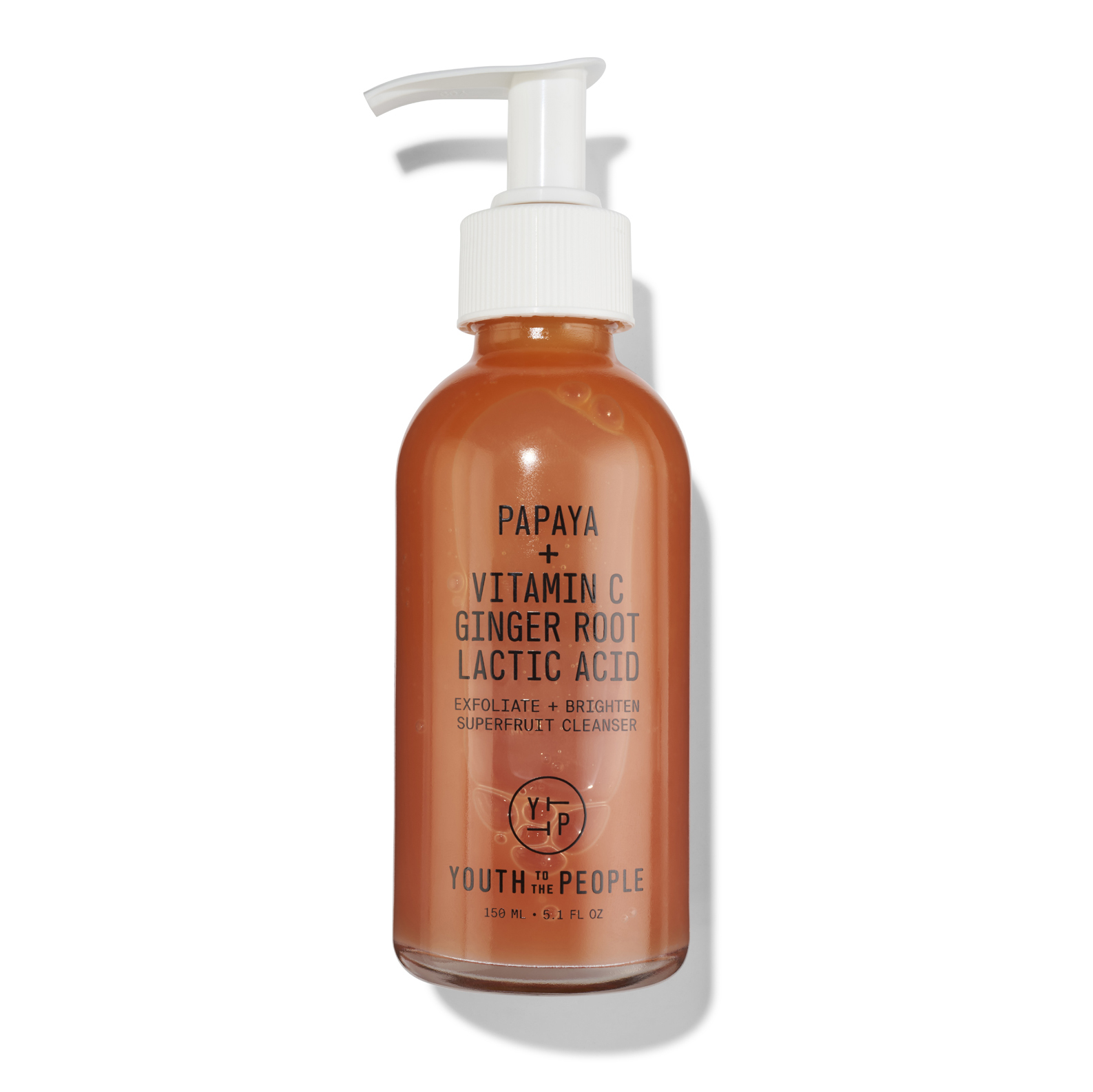
Best for: Dull skin
Best used: As a morning cleanse or second cleanse
Key ingredients: AHAs, BHAs, vitamin C, yerba mate
This zesty solution will make you and your skin feel awake and refreshed—it's a perfect morning cleanser. While cleansers don't typically have enough time to treat the skin, this contains a potent blend of four exfoliating acids which work in tandem to remove dead skin cells and smooth and brighten skin.
For
- Gently exfoliates
Against
- Not suitable for sensitive skin
10. Rhode Pineapple Refresh Cleanser
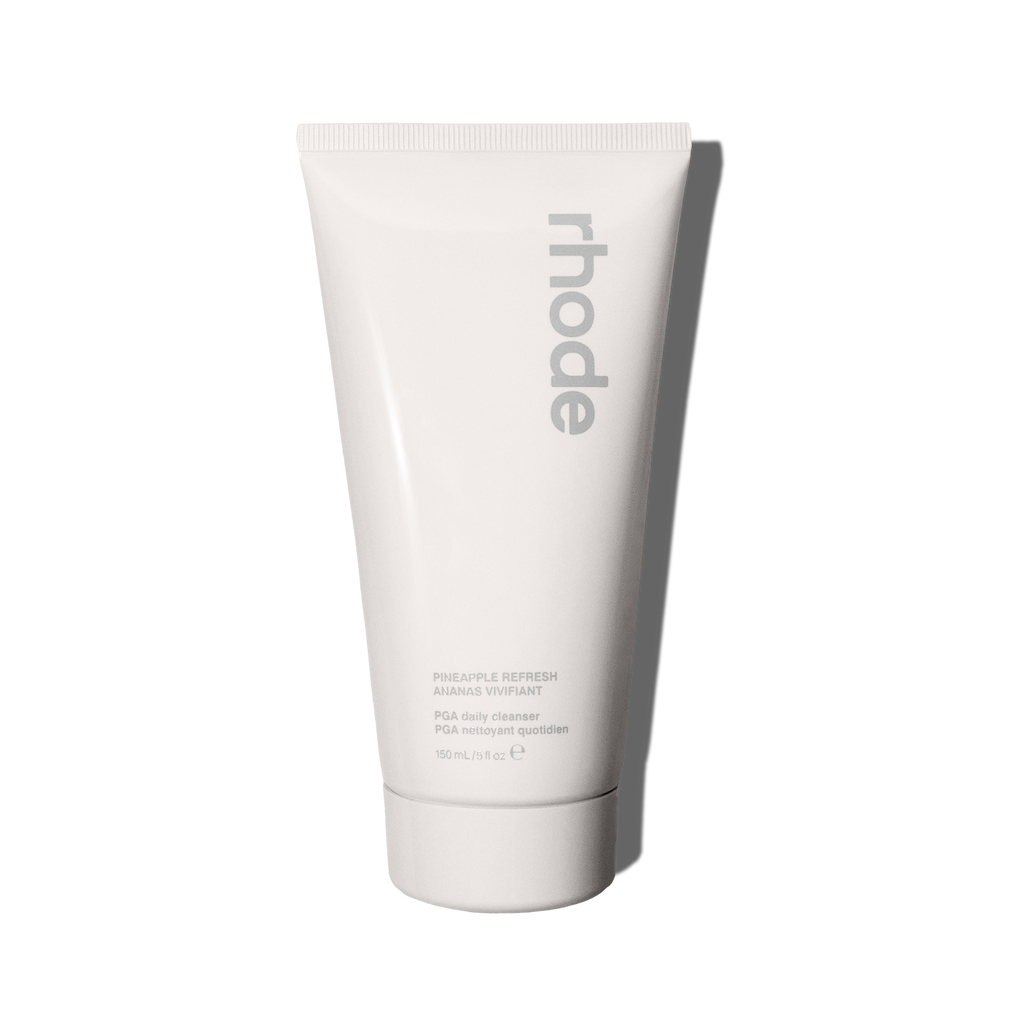
Best for: Textured skin
Best used: As a morning cleanse or second cleanse
Key ingredients: Polyglutamic acid, green tea, pineapple enzyme
Textured skin types will typically reach for an abrasive exfoliating scrub, but an enzyme-based cleanser like this one will be just as effective when it comes to sloughing away dead skin cells and smoothing skin texture. Plus, the lack of physical exfoliation means it won't cause any unwanted damage to skin.
For
- Suitable for all skin types
Against
- Only available online
11. Tatcha The Indigo Cleansing Balm
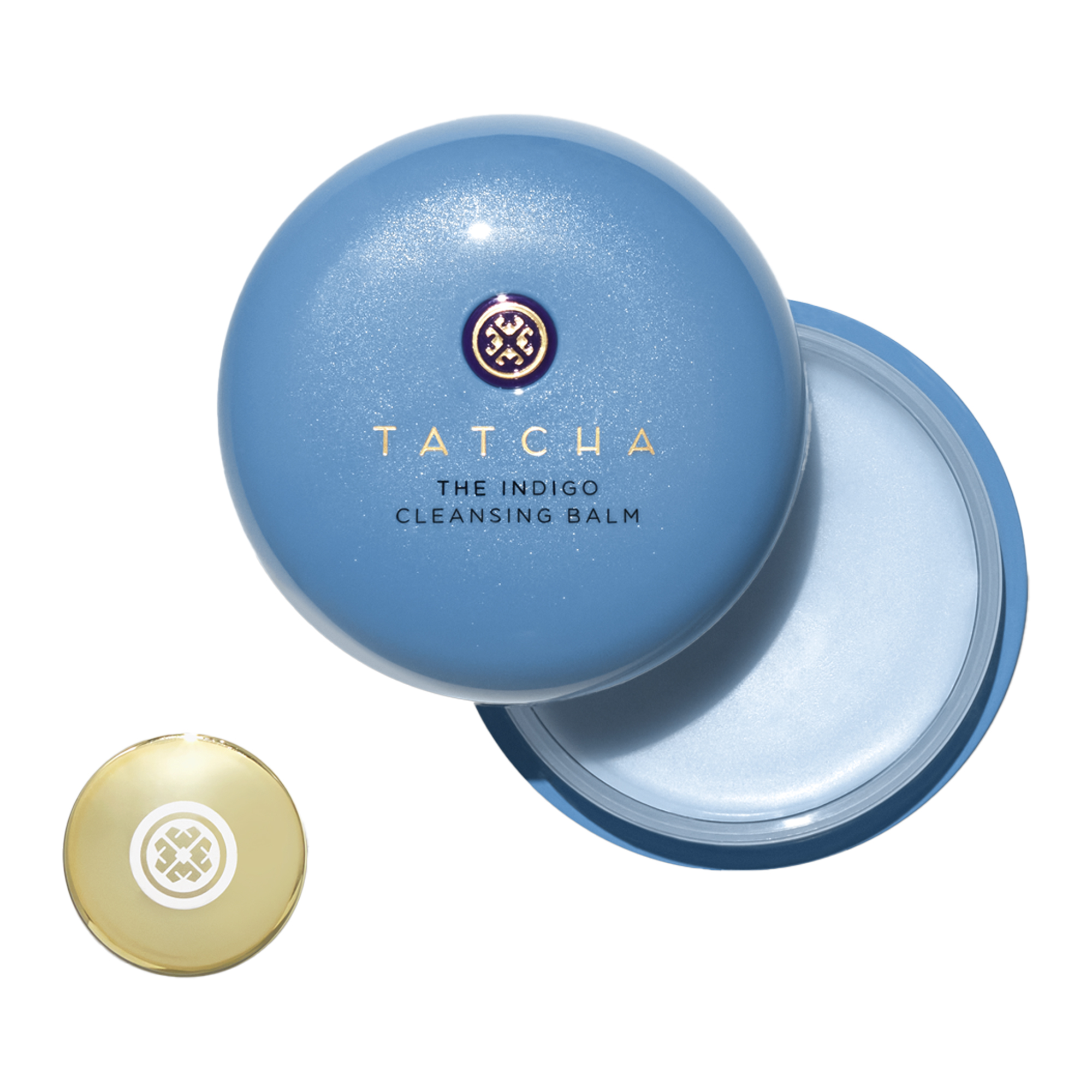
Best for: Mature skin
Best used: As an evening cleanse or first cleanse
Key ingredients: Japanese lotus extract, rice ferment, rice bran oil
Mature skin types will benefit from a gentle cleansing balm such as this one which cleanses by melting away makeup and impurities. It contains antioxidants to protect from environmental damage and blend of nutrient-rich superfoods to nourish and protect the skin barrier.
For
- Removes even waterproof eye makeup
Against
- Small size
12. Dr. Idriss Soft Wash
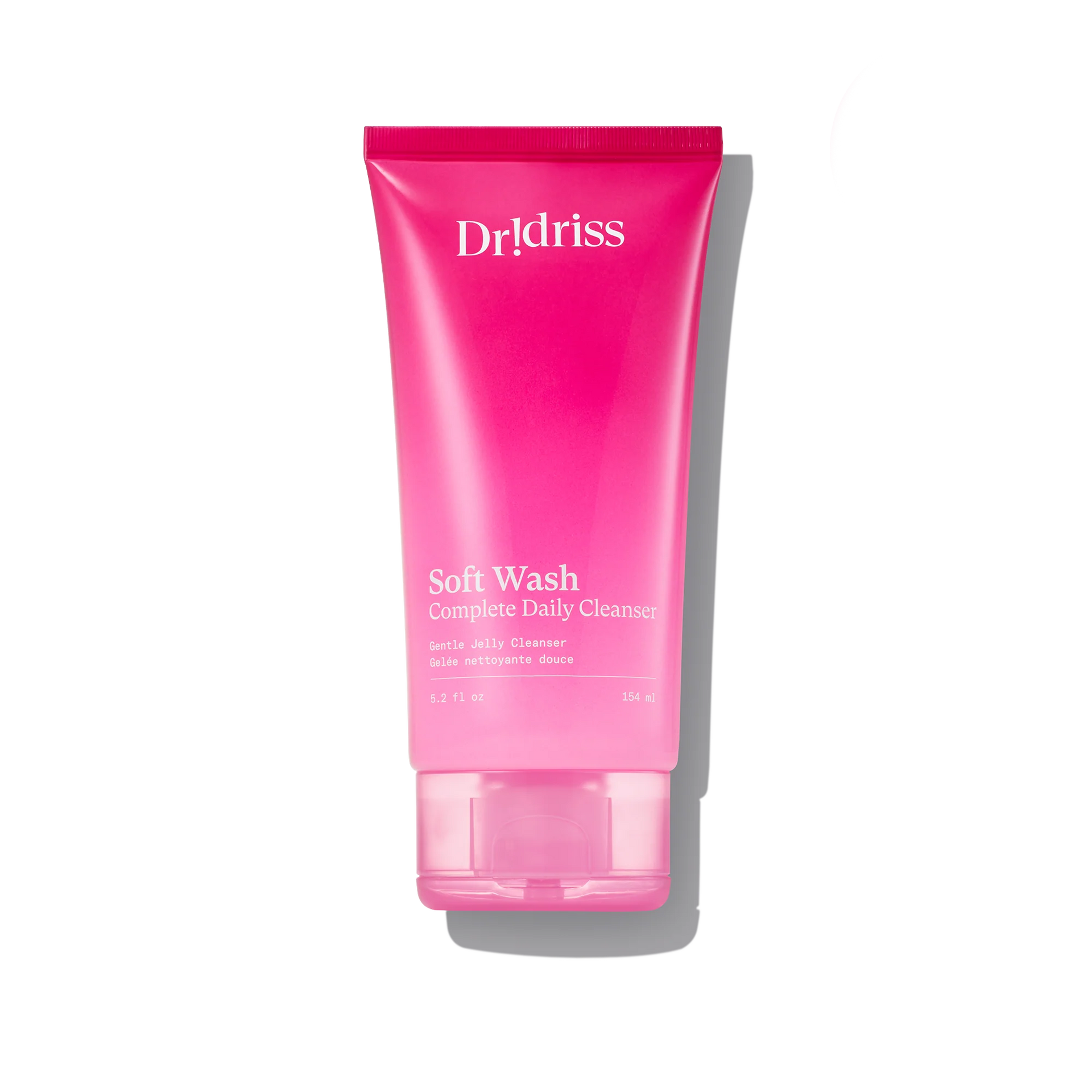
Best for: Teen skin
Best used: As a morning cleanse or evening/second cleanse
Key ingredients: Glycerin, fatty acids
A gentle multitasking cleanser is best for teen skin, which can experience a turbulent range of skin concerns simultaneously. I love that this silky jelly solution leaves skin feeling fresh but nourished at the same time.
For
- Leaves skin feeling fresh but not tight
Against
- Only available online
13. Glossier Milky Jelly Cleansing Balm
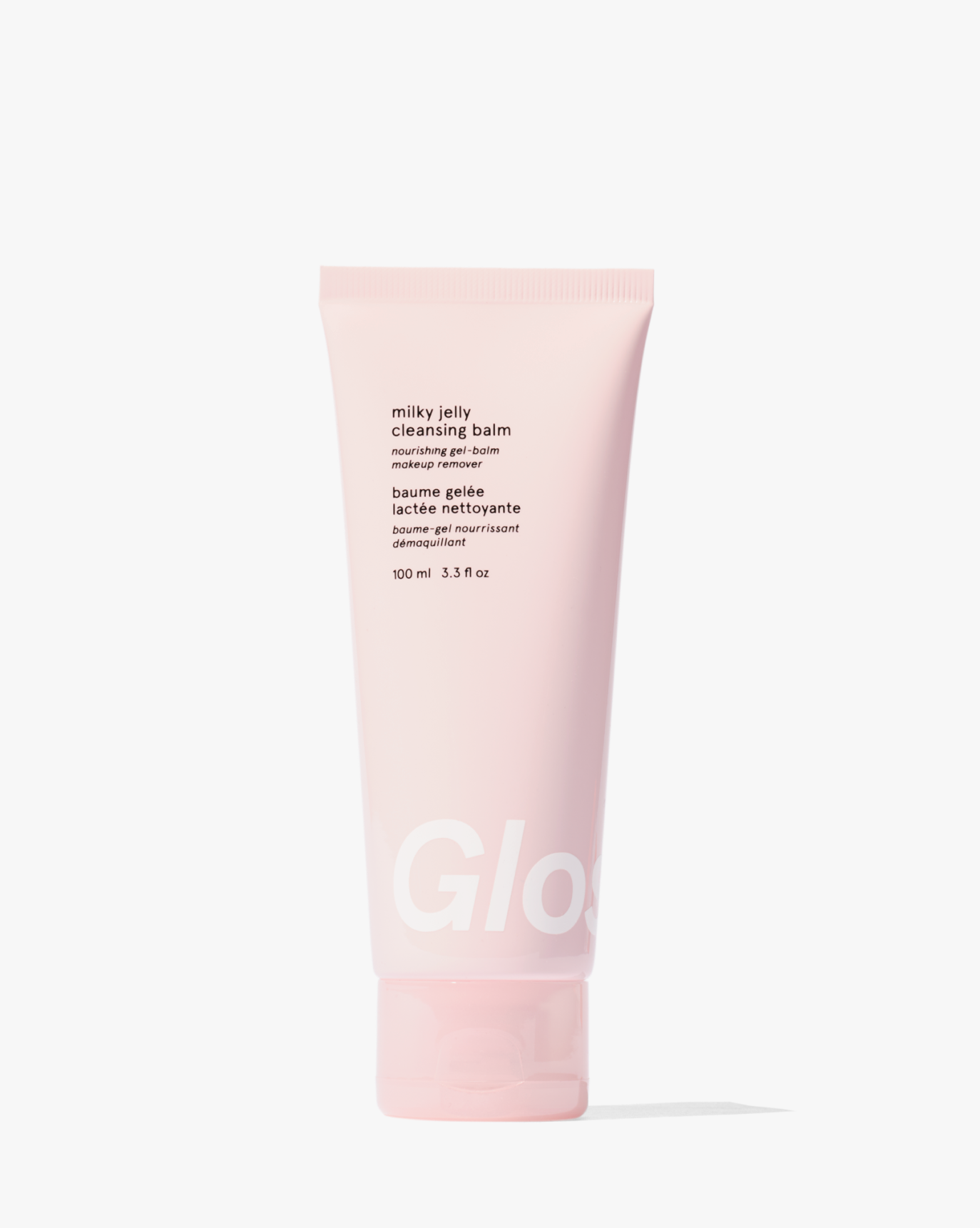
Best for: Makeup removal
Best used: As an evening cleanse
Key ingredients: Glycerin, sunflower seed oil, grapeseed oil
Emulsifying from jelly to oil to milk, this transformative cleanser breaks down even the most stubborn eye makeup without the need for a second cleanse. I find it's best applied to dry skin, massaged in thoroughly, then left to work its magic for a few minutes before rinsing off.
For
- A little goes a long way
Against
- Small size
14. Aveeno Calm + Restore Nourishing Oat Cleanser
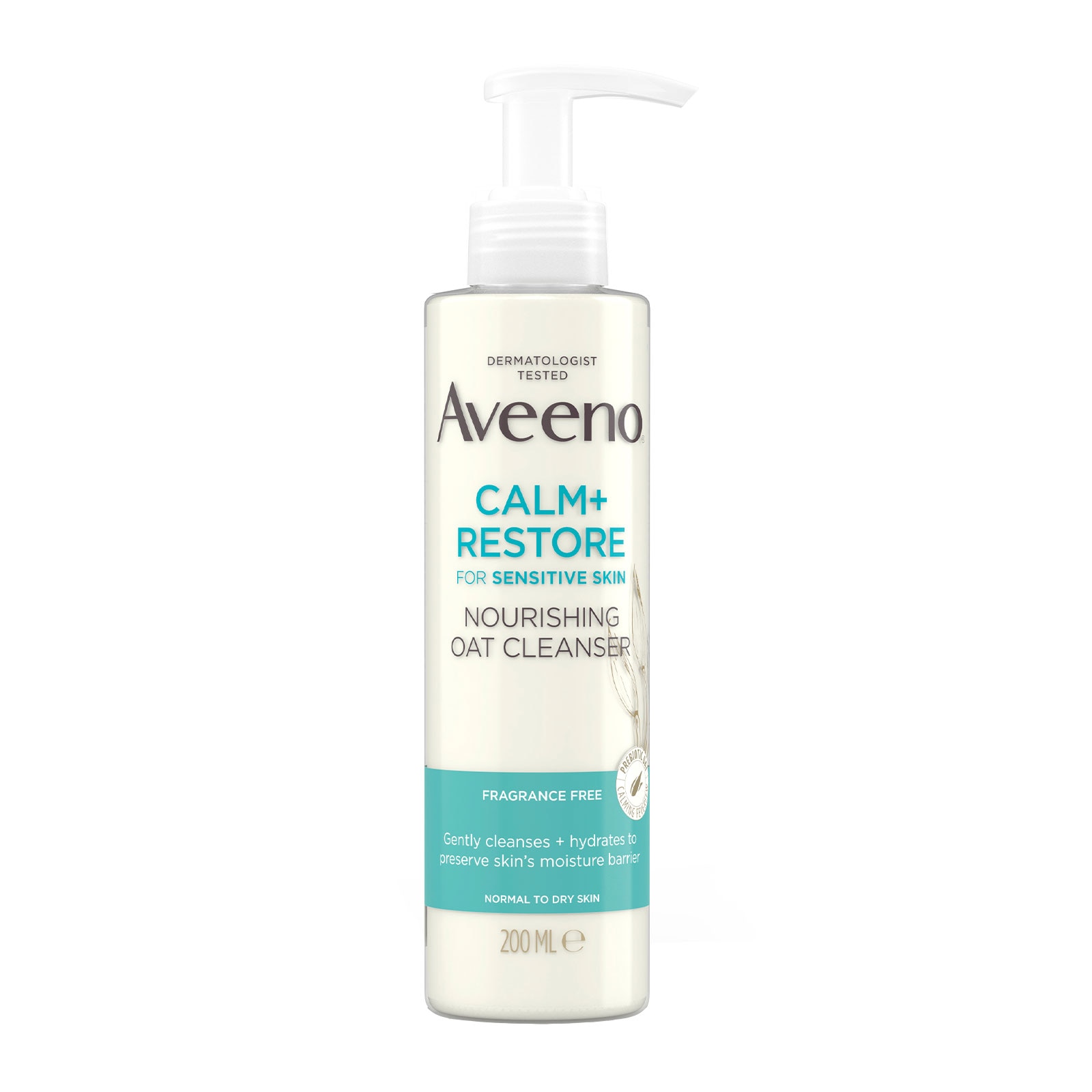
Best for: All skin types
Best used: As a morning cleanse
Key ingredients: Glycerin, prebiotic oat, feverfew
For the majority if skin type and concerns, something mild and gentle works best for a morning cleanse, since you don't need to remove anything heavy or stubborn from your skin. If you're unsure of your skin type, this soothing gel cleanser is a great place to start.
For
- Affordable price point
Against
- Often sold out
15. Skin Rocks The Cleansing Balm
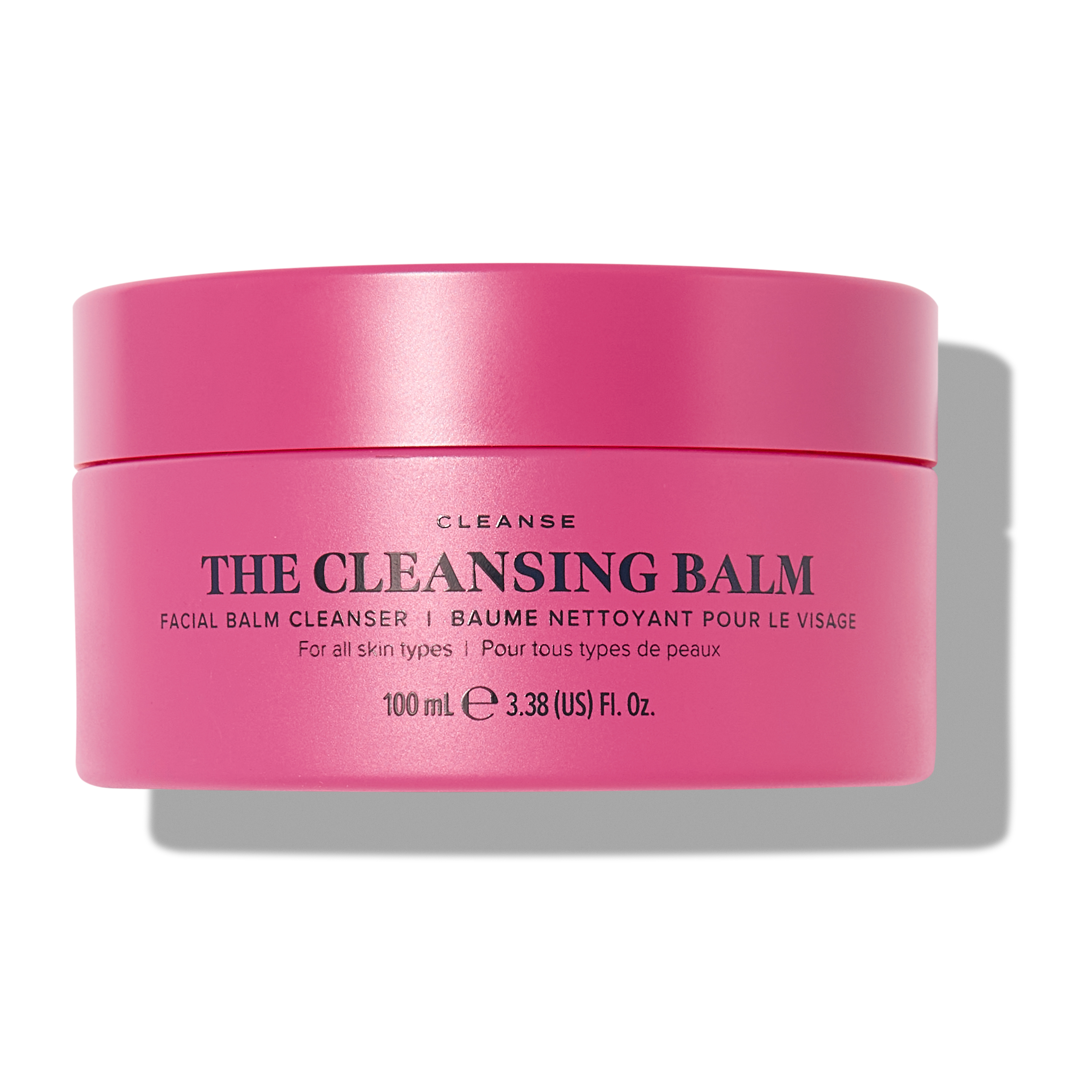
Best for: All skin types
Best used: As a first cleanse
Key ingredients: Squalane, jojoba, sweet almond oil
As far as luxury cleansing products go, this is up there in the top tier. Everything from the fragrance to the texture make for a truly sensorial cleansing experience. The thick balm instantly melts into a light, silky oil, which makes light work of makeup removal.
For
- Available in a fragrance-free version
Against
- High price point
16. iS Clinical Cleansing Complex
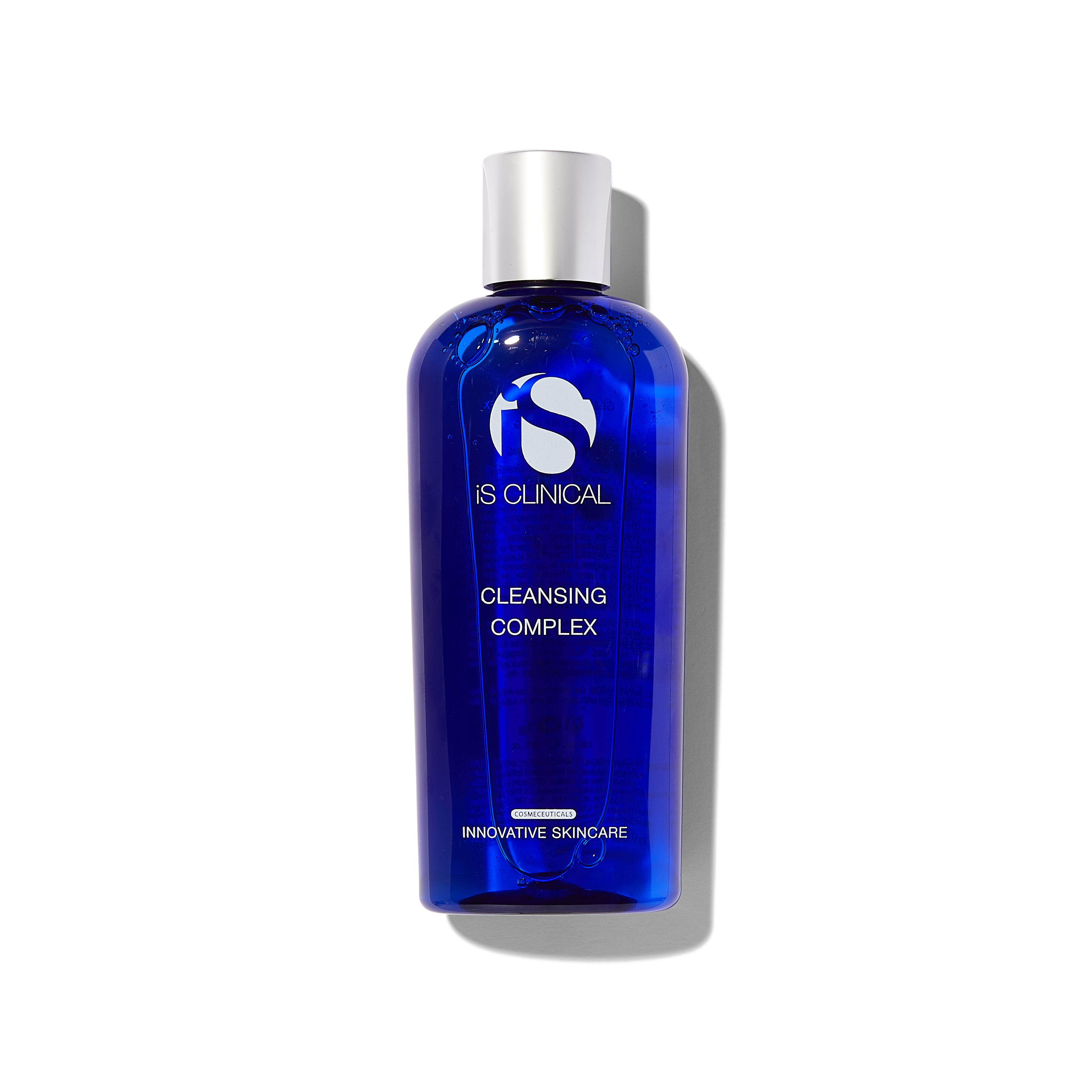
Best for: All skin types
Best used: As a second cleanse
Key ingredients: Cica, glycerin, salicylic acid
A water-based gel cleanser is ideal for the second cleanse, which is less about makeup removal and more about getting into pores to deliver a deep cleansing experience. This cult cleanser utilises salicylic acid to address oil-based congestion while cica works to soothe and calm skin.
For
- A little goes a long way
Against
- May not be suitable for very sensitive skin
The Testing Process
As an esthetician and beauty editor, I've tested hundreds of the best cleansers over the years, and in preparation for this feature I've been putting both cult classics and new launches to the test. I tested each cleanser against a full face of makeup and at different stages in my routine to figure out what where it worked best. In addition, I've pulled feedback from my friends and clients who have different skin types and concerns to my own, in order to establish the pros and cons of each cleanser.
Who Should Use A Cleanser?
In short, everyone. Even if you don't wear makeup, it's essential to cleanse skin in order to remove dust, pollution, sweat, oil, and product residue from skin.
In the morning, a gentle cleanse will suffice as you only need to remove whatever has built upon in your skin the night before—don't be tempted to skip this step, it's still crucial.
In the evening and after a day of being exposed to all sorts of environmental aggressors, you'll need a deeper cleanse. Those who wear makeup or who have easily congested skin will probably need to double cleanse—which involves using first an oil-based cleanser and then a water-based one to ensure skin has been thoroughly cleaned.
How To Cleanse Your Skin
Wondering how to wash your face and when? It depends on the time of the day and whether or not you're also removing makeup.
Morning cleanse: Prep skin by dampening it with water and ensure that your water isn't too hot, especially if you're washing your face in the shower. Massage a small amount of cleanser in small circles over your face and neck, with a firm pressure, then rinse off using your hands. Allow skin to dry, rather than drying it with a towel as this can transfer bacteria.
Evening cleanse: If you've worn makeup, use a micellar water to remove the majority of makeup from your face. This ensure that the cleansers you use next are focused on cleansing your skin, not makeup removal. To double cleanse, use a balm or oil first. Spend time massaging it slowly and firmly over your face and neck, then place a warm flannel over your face for 30 seconds and press gently. Next use a pump of a water-based cleanser, such as a foam or gel to cleanse your face again. if the product contains enzymes or exfoliating acids, you may want to leave it on your skin for a few minutes so they can work their magic. Rinse off with a clean, warm flannel and allow your skin to dry before proceeding with the rest of your skincare routine.
Grace Day is a beauty editor and content creator. She has over 10 years of beauty-industry experience, spanning editorial, retail, and e-commerce, which gives her a unique understanding into how people shop for their beauty routines.While studying for a history degree (specialising in the history of beauty) and working as a beauty adviser in department stores, Grace started writing her own beauty blog in order to share the products she discovered while dealing with acne. After graduating, she moved to Beauty Bay as beauty editor and content manager. Grace is currently a beauty contributor to Who What Wear. She has also written for Hypebae and PopSugar and works as a brand consultant and copywriter.
-
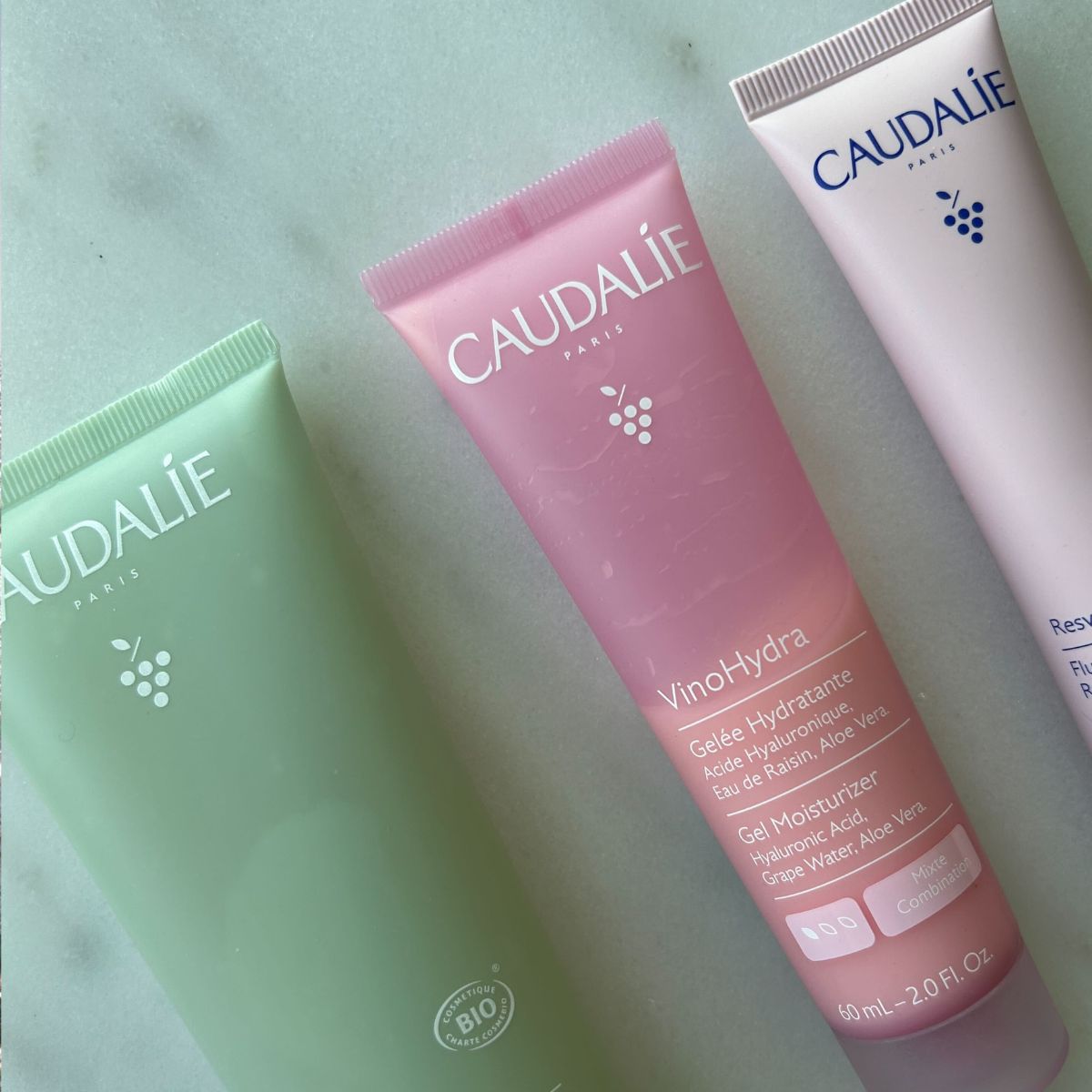 I've Tried Every French Skincare Brand Around—This Is the One Chic Parisians Genuinely Swear By
I've Tried Every French Skincare Brand Around—This Is the One Chic Parisians Genuinely Swear ByThe secret to that glow.
By Grace Lindsay
-
 The 17 Best Skincare Products for Over-50 Skin, as Chosen by Experts and Editors
The 17 Best Skincare Products for Over-50 Skin, as Chosen by Experts and EditorsPlus what ingredients to look out for.
By Grace Lindsay
-
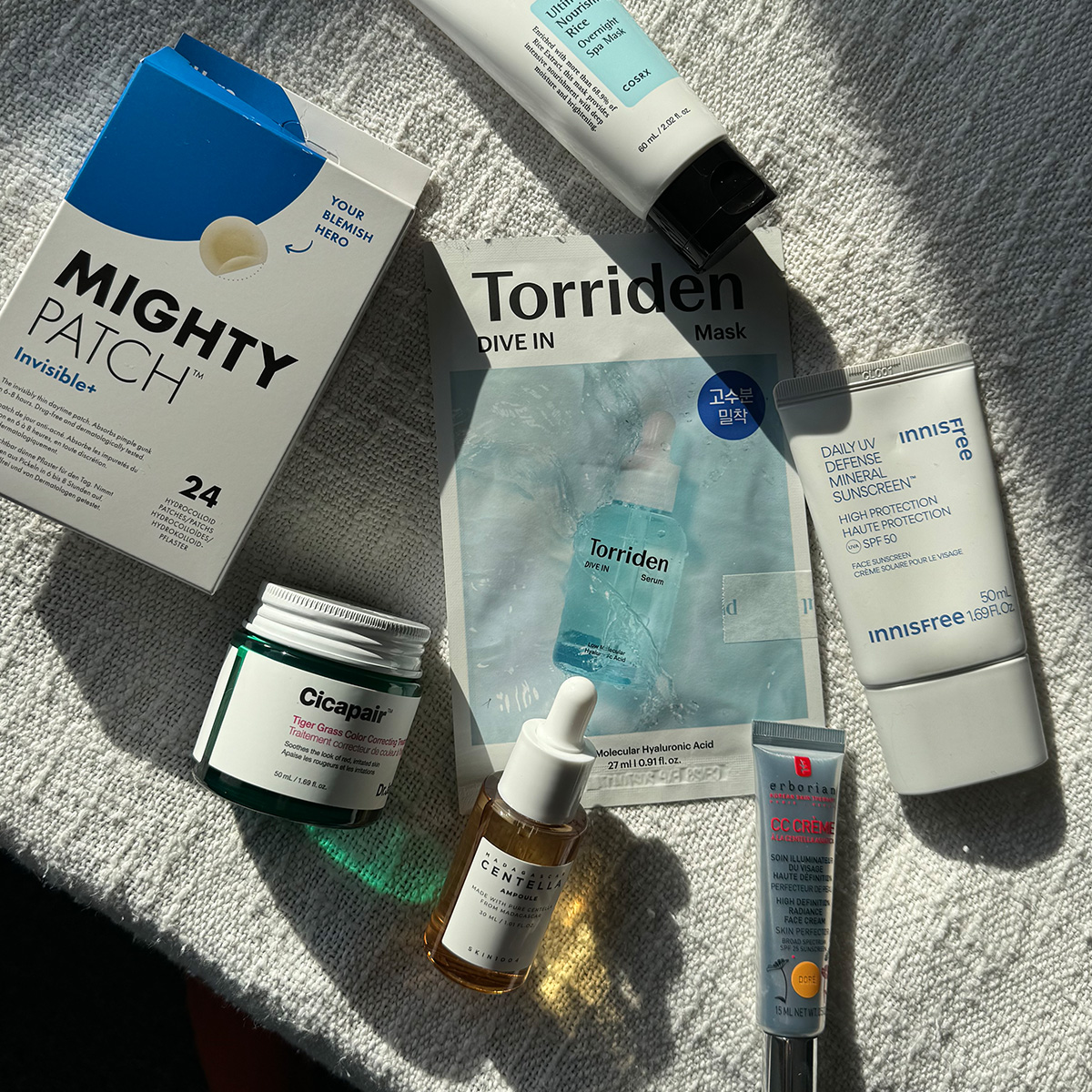 Everyone I Know With Glass Skin Uses This Type of Skincare—I Tried It for a Month and I Have Thoughts
Everyone I Know With Glass Skin Uses This Type of Skincare—I Tried It for a Month and I Have ThoughtsThey just might be onto something.
By Eleanor Vousden
-
 According to an Expert, Great Skin Will Come When You Break These Bad Beauty Habits
According to an Expert, Great Skin Will Come When You Break These Bad Beauty HabitsI'm guilty of almost all of these.
By Grace Lindsay
-
 The 13 Best Setting Powders, as Ranked by a Beauty Editor With Oily Skin
The 13 Best Setting Powders, as Ranked by a Beauty Editor With Oily SkinMakeup artists always recommend them.
By Mica Ricketts
-
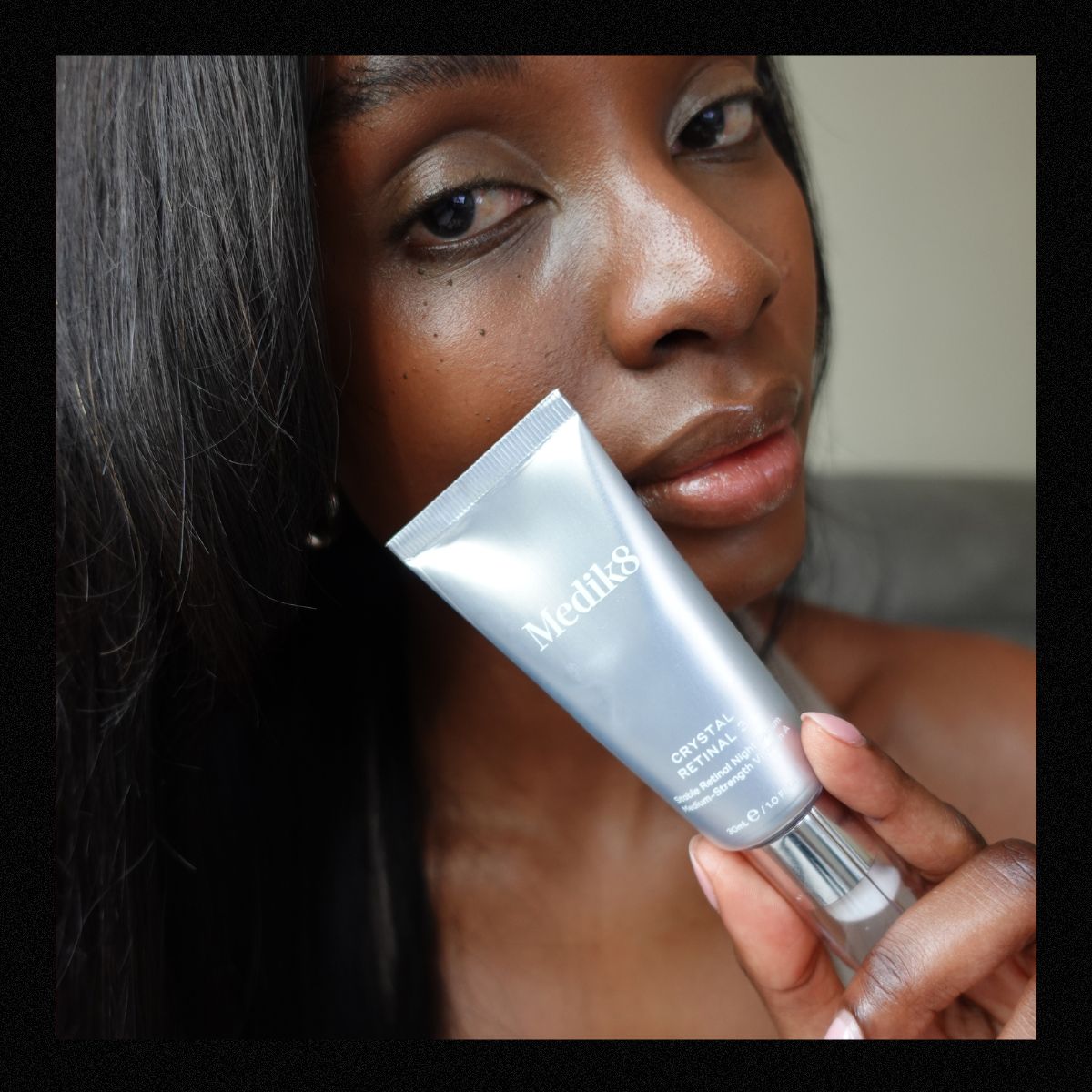 Next in Beauty Awards 2023: The Winning Skincare Products
Next in Beauty Awards 2023: The Winning Skincare ProductsThe best in beauty.
By Eleanor Vousden
-
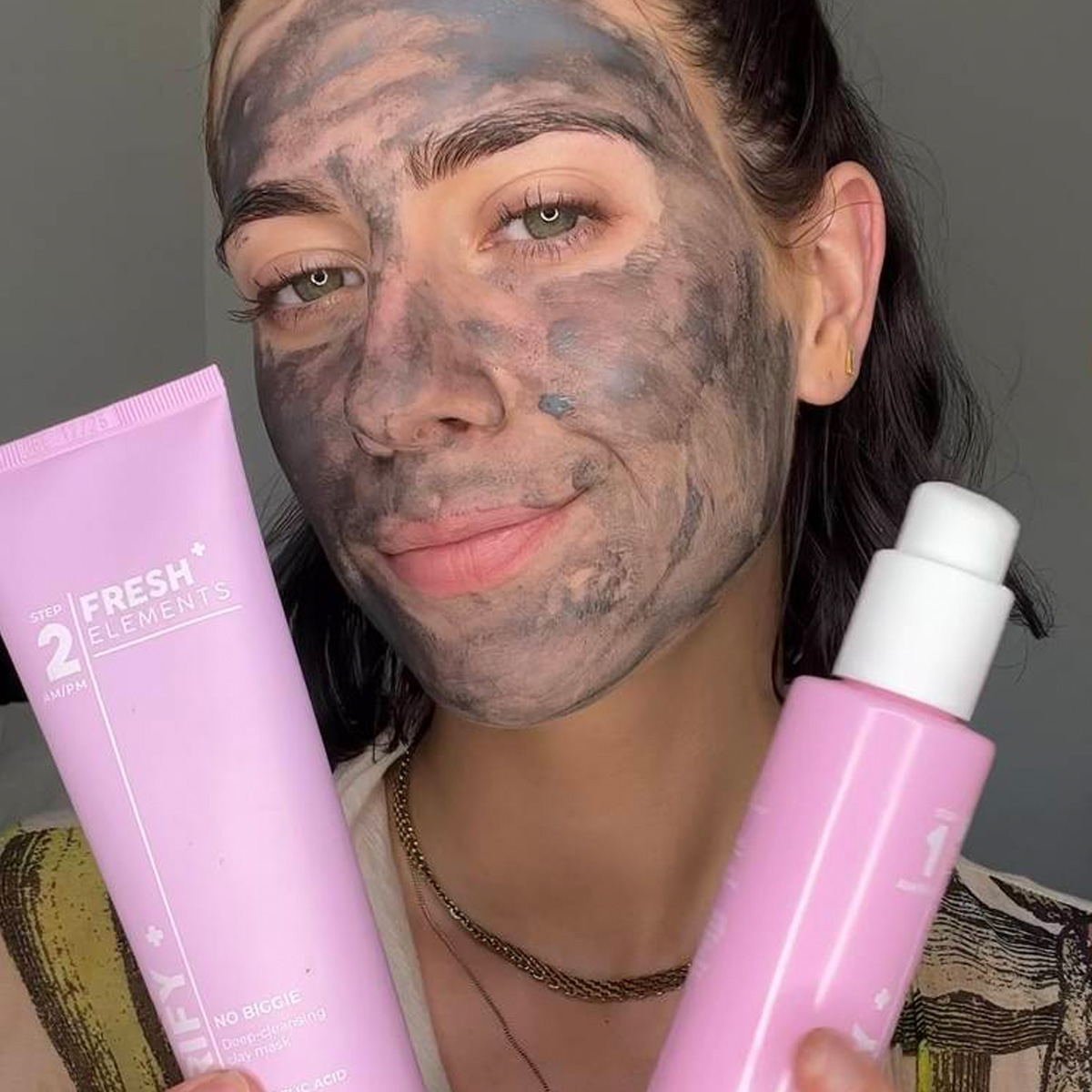 I Just Tried M&S's Affordable New Skincare Line—Here Are My Honest Thoughts
I Just Tried M&S's Affordable New Skincare Line—Here Are My Honest ThoughtsIs there anything M&S can't do?
By Mollie Burdell
-
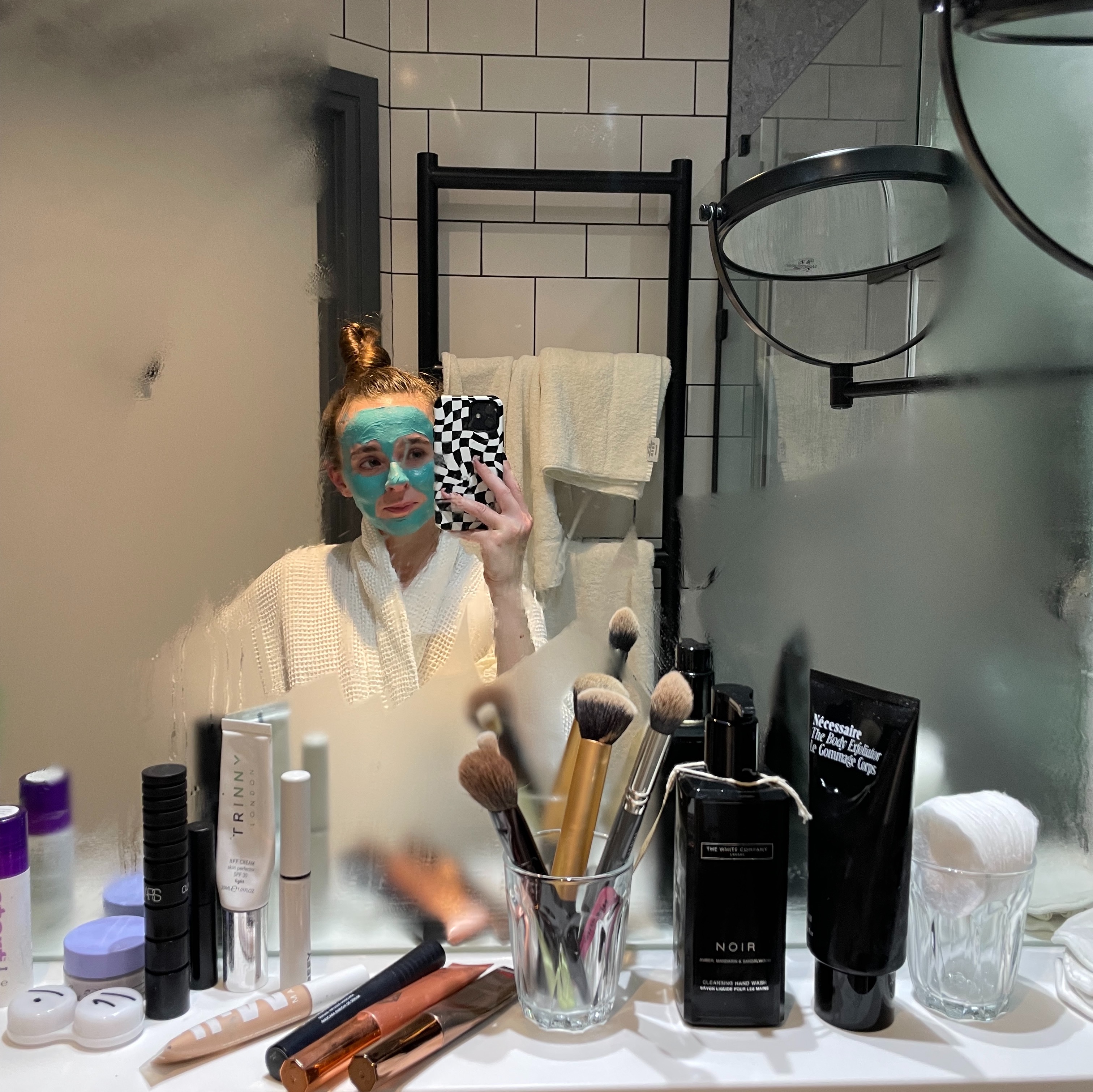 I’m An Esthetician and These Are My Most-Recommended Skincare Products
I’m An Esthetician and These Are My Most-Recommended Skincare ProductsYour skincare shopping list.
By Grace Day

